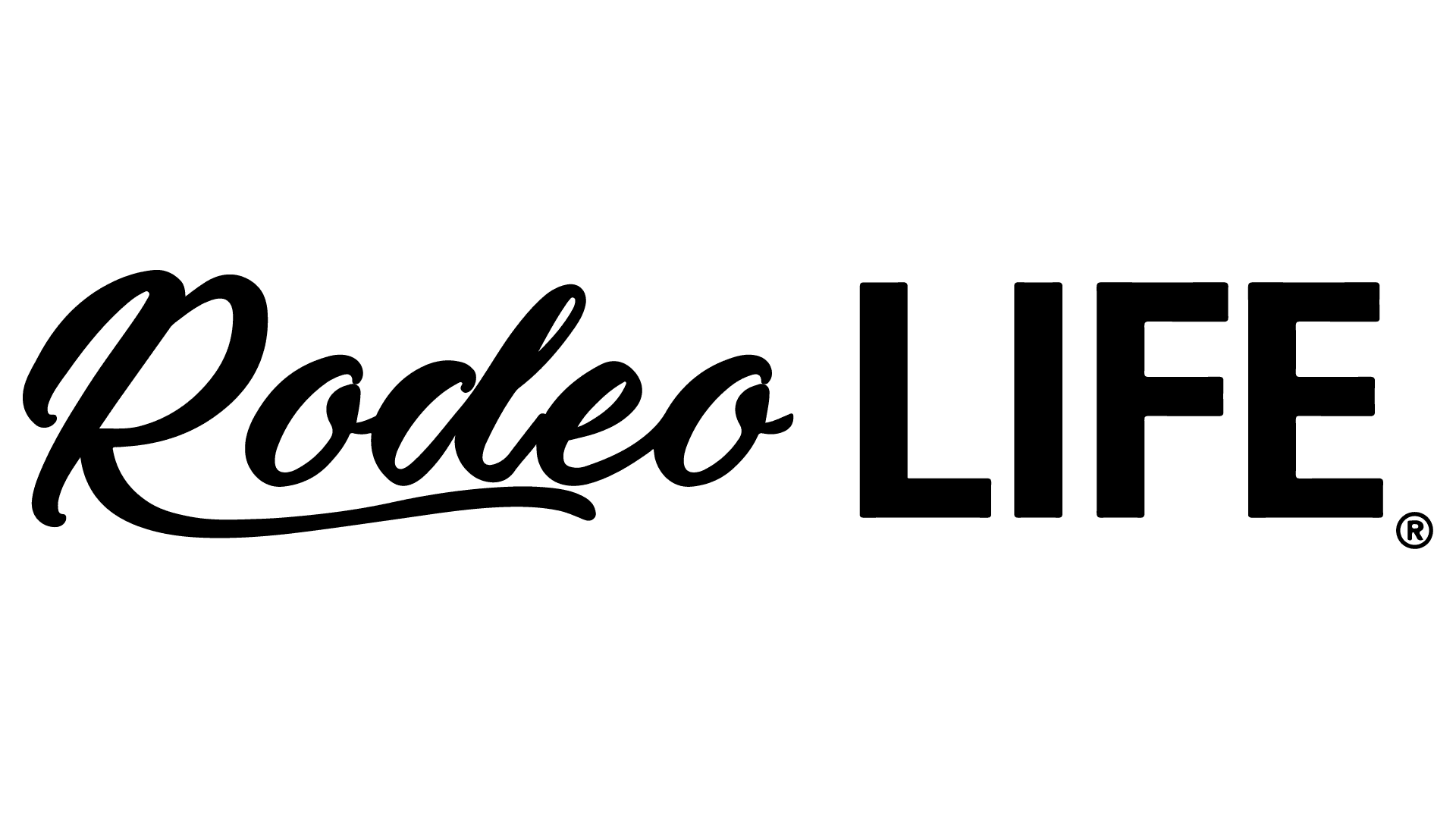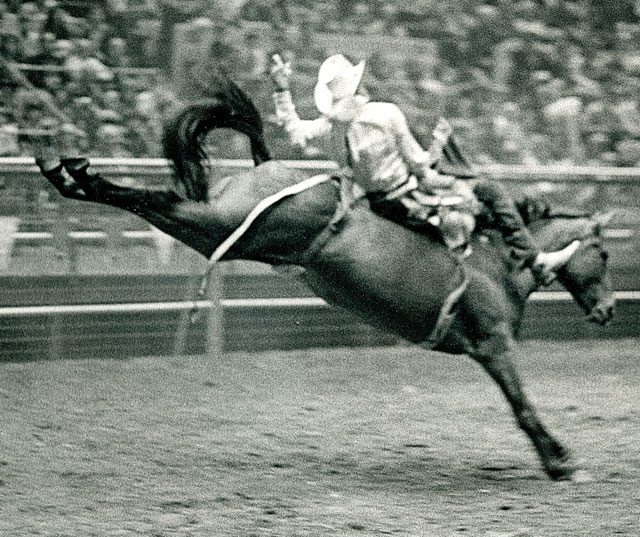C.R. Hall didn’t let anything get in the way of his dream of being a rodeo cowboy.
Including the color of his skin.
The black bareback rider and steer wrestler was raised in New York City and never got on a horse till his high school years.
Then, through hard work and determination, he became a rodeo contestant, competing all over the East Coast and throughout the nation.
He was born in 1943 in Vicksburg, Miss., the fifth child of William and Penola Hall.
But his dad died before he was born, so his mom packed up her five kids and headed to New York City, where her sister was living.
His mom never told her kids how her first husband, William, passed. “It was a mystery,” he said. “Mother refused to tell us. When we’d ask what happened to dad, she said, ‘you don’t want to know.’”
C.R. assumes that his mother kept their dad’s cause of death a secret from her kids so they wouldn’t form prejudices. “The way I look at it, she didn’t want (the reason for his death) to transform us, to give us a reason to fight.”
The family lived in Spanish Harlem, on 99th Street and 2nd Avenue in New York City, with Hispanics, blacks, and a few whites. The area had plenty of gangs: the Viceroys, the Dragons, the Untouchables, the Red Wings, all territorial, and if a person traveled through a gang’s territory, they had to tell why they were there and who they were going to see.
C.R.’s mom was tough. She worked twelve hours a day, cleaning office buildings from 6 pm to 6 am, then seeing her kids off to school.
The kids knew, when the streetlamps came on, they needed to be in the house or the neighborhood, and if they weren’t, she’d find out. “We listened to her, because we didn’t want to witness the strap,” he said.
She laid down the law with her kids.
“I don’t have to worry about my family,” she would tell people. “Because if the police station ever calls me and says ‘we have your son or daughter in the precinct, I’ll say, ‘keep them. Because I don’t raise convicts or drug addicts.’ That struck fear into us,” C.R. said.
“She beat our butts a lot, but she stuck to her rules, and her rules were strict.”
It was a chance encounter with horses after high school graduation in 1962 that started C.R. down the rodeo path.
He and friends went to the Bear Mountain State Park along the Hudson River, the first time C.R had been out of the city. They decided to go horseback riding, and when C.R. got on the horse, the guide asked him how long he’d been riding. When C.R. replied that it was his first time, the guide said, ‘no, you’ve been riding longer than that. You’re a natural.’ That gave C.R. confidence and piqued his interest.
When he got back home, he found the Park Riding Academy in the Bronx, where he went to ride every Sunday for several hours. His skills improved, and after a year, the academy owner suggested that C.R. could save money by buying his own horse. So he did, and went to the academy two or three times a week to ride, “as much as I could, and I got better and better.”
There were steers at the barn, and professional cowboys Gene Lorenzo and Jack Meli were there. C.R. would watch them steer wrestle. One day, Gene asked if he’d like to join them. C.R.’s quick answer was no.
But Gene coaxed him onto his steer wrestling horse and told him to point the horse at the box and nod his head.
The steer came out, Gene hazed, and C.R. froze.
“I wasn’t getting down (onto the steer) so Gene reaches over and pulls me down,” C.R. said, Gene talked him through the technique and C.R. turfed the steer.
After that, he started going to the Cowtown (New Jersey) Rodeo every Saturday night with them, acting as their groom, warming up and tacking up their horses, and learning a lot through observation.
After a year of that, Gene encouraged him to get his PRCA permit and suggested, because of C.R.’s small size, that the roughstock events would be his best choice.
He tried bull riding and saddle bronc riding, but neither seemed to fit. So he tried bareback riding, and “that felt better than the other two,” he said.
But it still took awhile to get the hang of bareback riding.
For the first two years at Cowtown, “I got creamed every time I got on. People would come up to the fence when I got on because I’d make spectacular falls.”
But another cowboy admired his try and perseverance. Teddy Fina, a bareback rider, showed him techniques and gave him advice. Teddy’s own grit rubbed off on C.R. “The determination and drive that I witnessed in him spilled over to me,” he remembered.
He went to Larry Mahan’s riding schools, which helped tremendously, and he still remembers a compliment Larry gave him. “Charlie, you got a lot of try,” he said.
Early in his career, he went by the name “Charlie Reno.” Jesse was his first name, but he didn’t like the references to Jesse James. Charlie Reno was the nickname he got at the barn where he kept his first horse, named Reno.
He got his PRCA permit in 1966, and earned his card a year later.
In 1968, he competed in Ft. Worth, the Cow Palace in Sacramento, Houston, and Madison Square Garden before breaking his neck and sitting out for two years.
He attended two steer wrestling schools instructed by Butch Myers and became good friends with the family.
C.R. married his first wife, Barbara, a barrel racer, in 1965. They divorced, and in 1972, he married Marie.
In 1972, he broke his wrist, and with his marriage to Marie and the start of his family, he quit rodeo competition.
He and Marie had their first son, Alexander, in 1975, and their second son, Jeremiah (Jerry), in 1981.
“I had a choice,” he said. “I needed a paycheck every week. I made the choice to stay home and work and take care of my family.”
But when the Red Pony Ranch, a riding academy in Lakewood, New Jersey, hosted an American Rodeo Association (now the American Pro Rodeo Association) rodeo in 1978, C.R. was there, and he got his APRA card.
Red Pony, five miles from his house, hosted a series of APRA rodeos, so C.R. competed there. The first year, in 1978, he was leading the bareback riding with three rodeos to go when he broke his foot. Being out for the remainder of the season dropped him to runner-up.
So the next year, he determined to get so far ahead that, if he got hurt, nobody could catch him. He did just that, finishing the 1979 season as bareback riding titlist, all-around champ, and third in the steer wrestling.
In 1983, he retired a second time from competition and began producing rodeos as the Hall and Sons Championship Rodeo Co. He put on PRCA, APRA, and International Pro Rodeo events in Red Pony, and throughout New York and showdeos with timed events only.
He became vice-president of the APRA in 1981, voted in, he believes, because he was always helping others.
He also hosted rodeo schools and taught the bareback riding, with instructors Frank Hollis for the saddle bronc riding and Bruce Semeria for the bull riding. Pete Leibold served as pickup man and flank man, among other duties.
All the while, he was working full time at the grocery store, being promoted up to the management level.
Prejudice because of his skin color was rare, but it did happen.
At first, his family discouraged him from rodeo, saying there were only white cowboys. “They said, I wouldn’t get a fair shot, the same fair opportunities afforded to the white cowboys,” he said.
“Mom was afraid for my safety. She came from the deep, deep south. She knew how people could be.”
He did witness prejudice against him because of his skin color, but incidences were few and far between. “The people who knew me as a cowboy and a competitor, they weren’t prejudiced against me.”
He remembers competing in Durant, Okla. when a young white teenage boy followed him around. “I was the only black guy behind the chutes,” C.R. recalls, “and this kid was walking behind me, like what’s going on with this guy? He must be putting on the bareback rigging for somebody else. He can’t be doing this for himself.” The boy’s mouth fell wide open when C.R. got on the horse and readied to ride.
At the same rodeo, he remembers the judge telling him, ‘I don’t know why you’re riding, because you’re not going to get (any points.)’ C.R. told him, “When I ride you won’t forget how I rode.” He remembers the ride, too. “The horse bucked and I rode the hell out of him, but I didn’t win any money on him. Then again, it was people who didn’t know me.”
C.R.’s philosophy was to do what he loved doing, no matter what anybody else thought.
“My dream was to be what I wanted to be. You can’t let people take your dream from you. Somebody can’t tell you you can’t do something. If you love it, you’ll do it no matter what and suffer the consequences.”
He retired from the grocery business in 2004, then started his own transport business, delivering rooftop air conditioners to building sites, traveling throughout the tri-state area.
In 2010, he closed his transport business, due to the high cost of diesel. But he went crazy sitting at home, so he answered an ad to be a New Jersey transit bus driver, and began driving bus. He drove for ten years before retiring in 2020.
He and Marie have four grandchildren: grandsons Gavin and JJ and granddaughters Dakota and Jenah.
His faith is strong, like his mama’s was. He knows who is in charge: God. “Don’t let man tell you where you’re going. (God) is in charge, he’s the one who knows, from day one, he knows how you came in and how you’ll go out. He’s your Creator, he created everything in your life, so listen to Him.
“If you have an issue, put it in God’s hands. He’s the miracle worker. If anybody can solve it, it’s him. You have to lean on His understanding and His timing, not your timing.”
Rodeo enriched his life, with good friends and life skills.
“I made a lot of friends. The people that were just starting out, that nobody would help, I’d help. Those guys trusted me. I was sincere, I wasn’t afraid of competition.” His friends were true friends. “Those guys were the best. We traveled together, and they had my back, they really had my back.”
Rodeo is a difficult sport, and because he learned it and became proficient in it, it benefited him throughout the rest of his life.
“Rodeo made me better in everything else I’ve ever done, because rodeo was the hardest thing I’d done and I accomplished it. So everything else was easy.”









